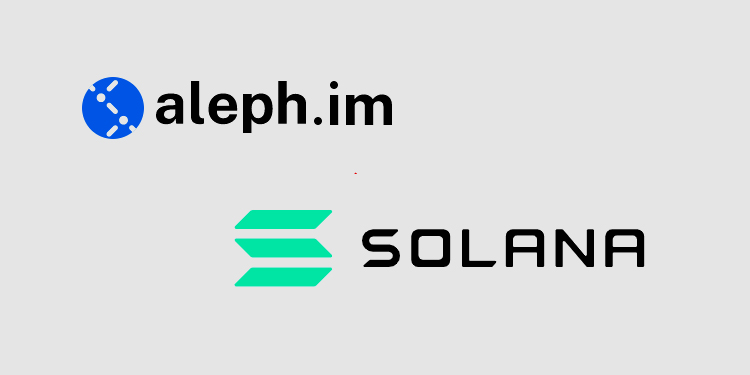Aleph.im, a cross-blockchain decentralized storage & computing network, today announced the release of decentralized indexing for the Solana blockchain.
The Solana blockchain is driven by intra-shard parallelism, which is capable of processing thousands of smart contracts at once, and by Proof of History, a distributed timekeeping method unlocking low latency.
Until now, apps built on Solana have had to rely on their own centralized indexing solutions requiring high costs for physical hardware, unfeasibly fast internet connections, and computing power. Aleph.im is a decentralized solution that provides computing power (Virtual Machines) to manage all indexing.
As the network runs 50 independent nodes, VMs can auto-scale on-demand, and indexes will be synced as needed across the nodes. Later this year, additional resource nodes will contribute to a tenfold increase in the number of nodes in the Aleph.im network.
Solana + Aleph
“Data availability is an integral component to building a consumer-friendly web3 world, and decentralized indexing services will play a large part in that transition,” says Anatoly Yakovenko, CEO of Solana Labs.
Having built solutions for Ubisoft, Polygon, Synaps, and Request, Aleph.im is on a mission to help any protocol and DApp decentralize up to the last mile, enabling a smooth transition into Web 3.
Beyond a strong infrastructure layer, Aleph.im has developed modular components on top of their system that provides an edge in offering truly decentralized and user-friendly indexing solutions for blockchains.
“We are very happy to help Solana-based applications to cut costs and enjoy better data retrieval and easy data query for their users”, says Jonathan Schemoul, CEO of Aleph.im. ”Together with aleph.im decentralized storage and indexing solution, projects on Solana can move towards full-stack decentralization and we hope to help more protocols and ecosystems achieve the same”.
In order to support projects accelerate toward full decentralization, Aleph.im is offering free limited-time development and implementation of GraphQL endpoints to all projects within the Solana ecosystem.
Already, more than eight Solana-based projects have already begun working with Aleph.im developers to integrate this indexing solution, with more to come.
Raydium
Projects like Raydium, an automated market maker built on the Solana, is an example of benefiting from Aleph.im’s indexing solution, helping them provide rich data to their users such as historic token swaps, liquidity provision, token prices, total volume across trading pairs, and TVL for their fusion pools.
“Aleph’s indexing tools will be instrumental to Solana’s success and currently power all of Raydium’s analytics,” says AlphaRay, Head of Raydium.
